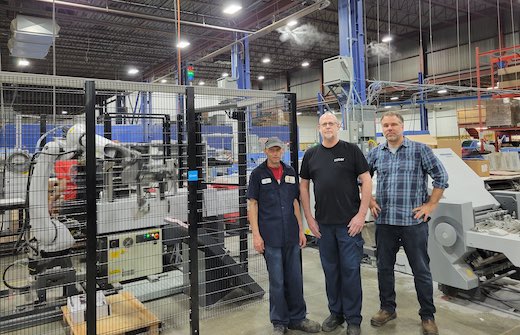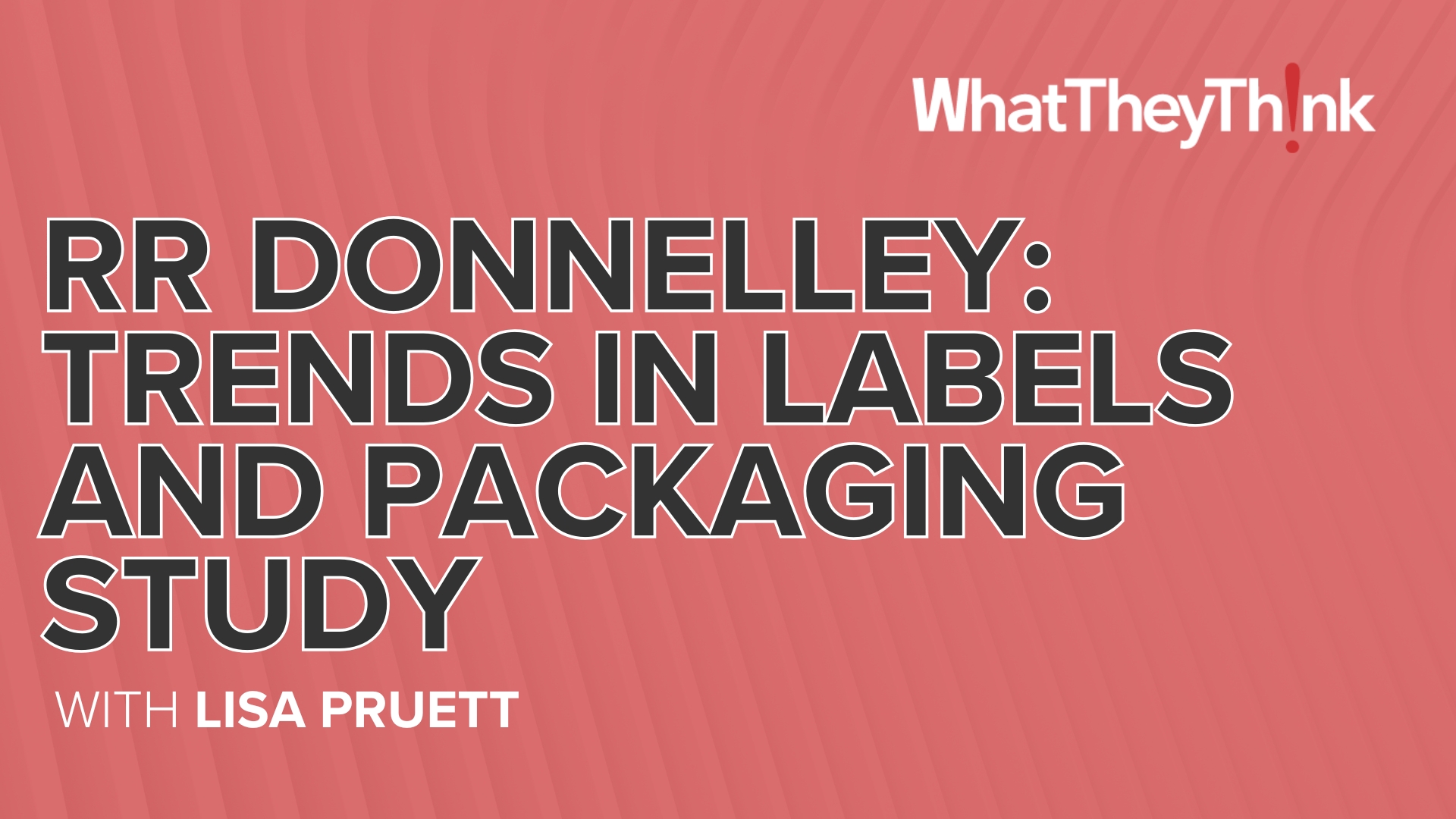Cober Leads Canadian Market with Productivity Boosting, Robotic Technology from HEIDELBERG
Press release from the issuing company

Left to right: Jonathan Walsh (Operator, Cober), Joe Bain (Lead Hand, Cober), Sam Mueller (Director of Operations, Cober) with Stahlfolder TH 82 and P-Stacker
Kennesaw, Ga. – Cober, headquartered in Kitchener, Ontario, continues to bolster its position as Canada’s premiere commercial and third-partner printer by investing in state-of-the-art technologies from HEIDELBERG. The company’s recent investments, designed to reduce the pressure of increasing costs and the shortage of skilled labor in the printing industry, include two “firsts” in Canada: the Plate to Unit for its Speedmaster XL 106-8P and the new robotic P-Stacker for its Stahlfolder TH 82 with PFX feeder. For Cober, the machines maximize throughput while lowering cost per sheet as the company looks to increase its competitiveness in the marketplace and ultimately, boost profitability.
Game Changing Technology
Due to its high number of short runs, Cober installed a new Speedmaster XL 106-8P with Plate to Unit in 2022 to eliminate bottlenecks in its platemaking process. Plate to Unit from HEIDELBERG is a fully automatic printing plate logistics solution designed to reduce operator workload and ensure higher process reliability. Printing plates are automatically placed in and removed from the correct plate-changing shaft without operator intervention.
Since installation, Cober has been able to consistently achieve two-minute makereadies “without burning out its crew,” said President Todd Cober. “We just need to be more productive with less people, not because we want less people, but because less people are available to us.”
Plate to Unit minimizes the press downtime that results from the operators changing out plates for the next run. With an autonomous plate-changing process, Cober said his team’s focus is now on the quality of job. “We expect a lot out of the press and the crews that run it, and this system is critical to hitting our productivity targets. After using Plate to Unit for a couple of months, I can’t imagine buying a press without this functionality. It has become a game changer.”
In addition to streamlining the plate changing process, Plate to Unit also provides complete real-time job information for the operators. Through a sensor-controlled process, loaded plates are scanned – pulling all necessary job information for each form and preloading the data, which allows for very fast makereadies. “Our operators love this device,” said Cober. “It is very intuitive and consistently runs without any human intervention.”
One Operator, Double the Speed
To further extend its productivity throughout the production process, Cober recently installed a Stahlfolder TH 82 with PFX Feeder and new P-Stacker. The TH 82 replaces two older buckle folders and is used exclusively for folding the company’s 16-page signatures. HEIDELBERG’s PFX Feeder is designed to feed sheets like the feeder of a printing press – with the sheets shingled and underlapped in the first folding unit instead of feeding them conventionally with a sheet gap. The underlapping of sheets (shingling sheets) on the infeed register table nearly doubles the number of sheets that can be processed versus conventional sheet gap feeding at the same running speed.
According to Cober, “With our older streamfed folders, we would have three people running two folders. Now it’s one person on one folder at twice the speed.”
Cober is also saving labor while increasing throughput with its new robotic P-Stacker – a six-axis industrial robot that gently and securely grips and autonomously places each signature pile from the folder’s delivery onto a pallet using sophisticated gripper technology. This automation complements the Stahlfolder’s Push to Stop function, where the system automatically changes from one signature to the next. Together, the technologies makes the folding process almost completely autonomous.
Stacking up to 300 signature piles per hour, the P-Stacker helps eliminate a very physical element of the folding process for Cober’s operators. “There’s an ease of onboarding new team members into an automated environment,” said Cober. “We can bring in operators with no printing experience and have them running equipment within a few weeks whereas before, that was completely a pipe dream.”
Looking ahead, Cober noted, “As a result of what the labor market will continue to look like in years to come, I think companies, not just exclusive to printing, that want to be successful will have to invest in automation and robotics. I think the technology HEIDELBERG has introduced in this arena has been exceptional in terms of quality and speed.”
- Questions to ask about inkjet for corrugated packaging
- Can Chinese OEMs challenge Western manufacturers?
- The #1 Question When Selling Inkjet
- Integrator perspective on Konica Minolta printheads
- Surfing the Waves of Inkjet
- Kyocera Nixka talks inkjet integration trends
- B2B Customer Tours
- Keeping Inkjet Tickled Pink
© 2024 WhatTheyThink. All Rights Reserved.















- Discussion is closed -